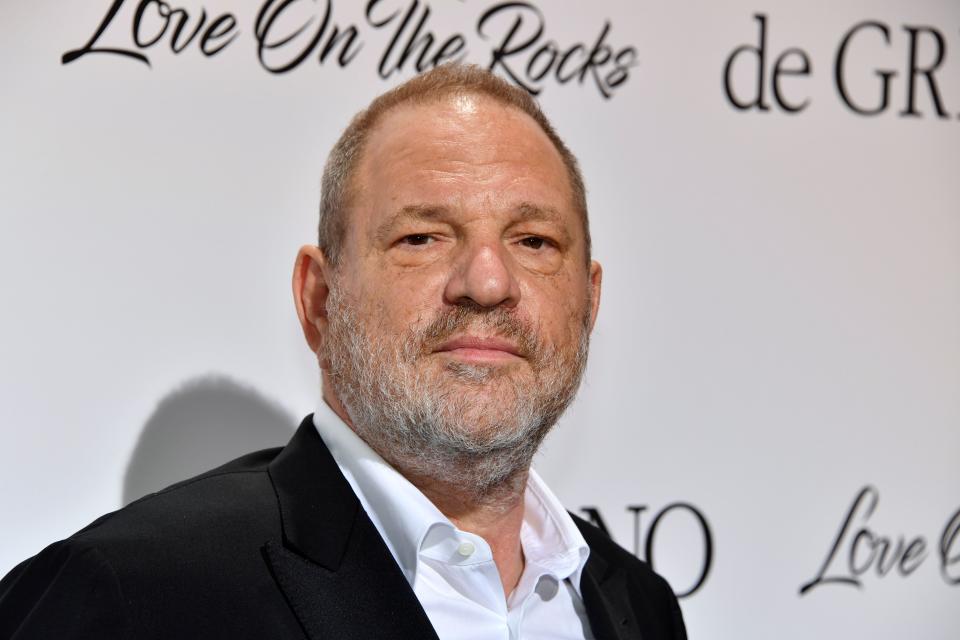What does it mean that the Weinstein NDAs are being voided?
The Weinstein Company filed for bankruptcy on Monday, announcing it was ending all nondisclosure agreements that may have silenced some women who might otherwise have spoken out against the disgraced Hollywood producer Harvey Weinstein.
“Since October, it has been reported that Harvey Weinstein used nondisclosure agreements as a secret weapon to silence his accusers. Effective immediately, those ‘agreements’ end,” the Weinstein Company said in a statement. “No one should be afraid to speak out or coerced to stay quiet. The Company thanks the courageous individuals who have already come forward. Your voices have inspired a movement for change across the country and around the world.”

The move comes one month after New York Attorney General Eric T. Schneiderman filed a lawsuit against the Weinstein Company, Harvey Weinstein, and Robert Weinstein for violations of New York’s civil rights, human rights, and business laws.
It’s been five months since the company’s co-founder, Harvey Weinstein, was first accused of sexual harassment. Since then, over 70 women, including actresses Gwyneth Paltrow, Angelina Jolie, and Rose McGowan, have come forward to accuse him of harassment, assault, and/or sexual misconduct. (Weinstein has denied all claims of nonconsensual sex.)
So, what does the ending of Weinstein’s nondisclosure agreements mean for his alleged victims and witnesses?
Yahoo reached out to Angela Reddock-Wright, a Los Angeles-based labor and employment attorney with the Reddock Law Group, to comment on implications of the news. Her practice includes the mediation, arbitration, and investigation of workplace disputes, particularly focusing on sexual harassment.
“NDAs are a standard document used to settle cases, especially sexual harassment cases,” she explains. “On the one hand, [the Weinstein Company is] doing the right thing, but it’s also a risk-management tool.”
Reddock-Wright continues, “From a risk-management perspective, they presumably decided to void the NDAs in order to know the entire pool of potential claimants, and that way, they can address the claims head on. This could really open the floodgates for victims to come forward and sue for prior accusations of harassment.”
As far as how the Weinstein Company’s bankruptcy could affect potential settlements for the alleged victims, it sets up a temporary roadblock for those seeking financial justice.
Reddock-Wright points out that the bankruptcy will halt lawsuits against the company. Essentially, victims have to get in line, as any compensation they might potentially be entitled to would only be possible after secured creditors are paid in full. According to Reuters, at least one bid for the Weinstein Company includes an investor who would provide a $80 million to $90 million compensation fund to supplement any insurance payouts victims would receive.
While the Weinstein Company has ended nondisclosure agreements, it doesn’t appear as if that applies to any personal agreements made by Weinstein himself. While those would still be enforceable, Reddock-Wright says plaintiffs’ attorneys would argue that Weinstein is the Weinstein Company, thus attempting to ensure that NDAs made by the former producer are thrown out and declared invalid.
New York Attorney General Eric T. Schneiderman called the NDA release “a watershed moment,” saying that it “will finally enable voices that have for too long been muzzled to be heard.”
Reddock-Wright sees the implications this will have for both sides. “It makes the decision to settle the case much more difficult if you’re the defendant,” she says. “If a company’s dirty laundry is going to be aired no matter what, it takes away the incentive of settling cases early and outside of court.”
Still, what this can do for victims is huge.
“The fact that the Weinstein Company is voiding them, and other companies are considering doing the same, is changing how we do business and how we facilitate settlements on high-profile matters,” Reddock-Wright explains. “[This] has the potential of opening the floodgates for more victims, not just in the Weinstein case. … It’s taking out the whole concept of confidentiality.”
Read more from Yahoo Entertainment:
Aubrey O’Day song lyrics may have revealed affair with Donald Trump Jr. in 2013
Jim Carrey’s Sarah Sanders painting creates a controversy, but have you seen his Donald Trump?


